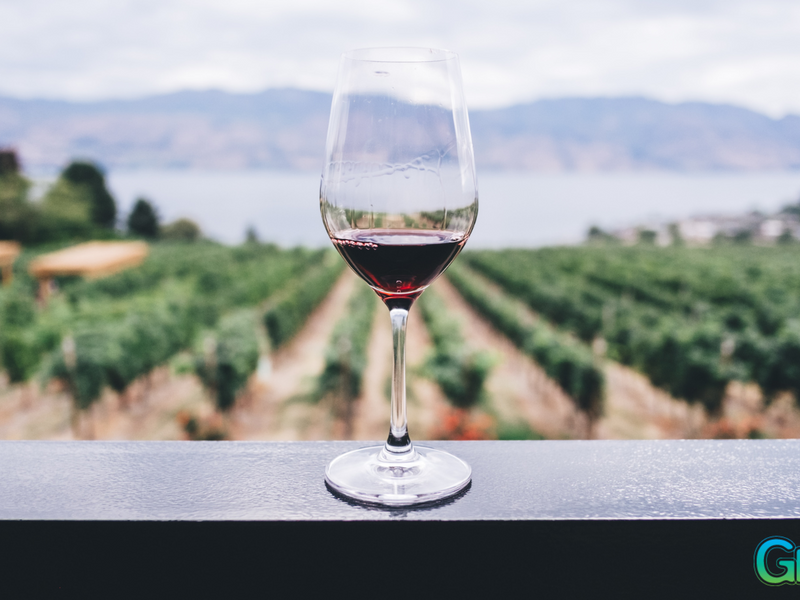Uncovering the Non-Alcoholic Terroir Beverage Movement

Terroir is an important concept in the wine industry, and now it is being applied to non-alcoholic beverages. This article discusses the concept of terroir, how it is being used in the non-alcoholic beverage industry, and why it is important.
What is Terroir?
Terroir is a French term used to describe the environmental conditions and characteristics of a region that give a specific product its unique flavor and characteristics. With regard to the wine industry, terroir is used to describe the land, climate, and soil that produces the grapes used to make the wine. It is believed that these environmental factors contribute to the flavor and character of a particular wine. Terroir is an important concept in the wine industry, as it helps to differentiate and distinguish wines from different regions.
The Judgment of Paris
In 1976, the “Judgment of Paris” changed the way the wine world viewed Napa Valley. This blind tasting pitted California wines against some of the best wines from France. Surprisingly, California wines won the competition, and Napa Valley became known as a premier wine region. This competition gave rise to the concept of terroir, a French term that describes the unique characteristics of a particular region or area that give a particular wine its flavor. Since then, the concept of terroir has been a major factor in the production and evaluation of wine.
Craft Beer and Terroir
The concept of terroir, the idea that the geography and climate of a region can affect the flavor of a beverage, has been a major factor in the craft beer industry. Terroir influences the taste and aroma of craft beer based on the ingredients used, including the type of hops, malts, and yeasts used. As a result, craft beers produced in different regions can have unique flavor profiles that reflect the local environment. The terroir concept has allowed craft brewers to create beers that are truly unique to their region and has been a major factor in the growth of the craft beer industry.
Non-Alcoholic Terroir Beverages
More recently, the concept of terroir has been applied to the realm of non-alcoholic beverages. Non-alcoholic beverages are gaining in popularity as more people are looking for healthier alternatives to alcoholic drinks. These drinks are made from locally sourced ingredients and are said to capture the flavor of the region they are grown in. The production of these drinks also often involves sustainable farming and harvesting practices. As a result, these beverages are becoming increasingly popular as consumers look for drinks that are both health-conscious and flavorful.
History of Non-Alcoholic Terroir Beverages
The concept of terroir - the idea that the land and climate a product is grown in has an effect on its flavor and characteristics - has been around since the 16th century. In recent years, non-alcoholic terroir beverages, such as coffee, tea, juices, and sodas, are becoming more popular. Many companies are now offering products that embrace the concept of terroir, allowing consumers to experience the flavor of a particular region. These products often use locally-sourced ingredients, and the unique environment of each region can be reflected in the flavor of the beverage. By using terroir-based beverages, consumers can enjoy the flavors of a particular region without needing to travel there.
Benefits of Non-Alcoholic Terroir Beverages
Non-alcoholic terroir beverages offer many benefits to those who drink them. The unique flavors of each region can be experienced without having to travel there, and they can provide a unique experience for those who enjoy exploring different cultures and taste profiles. Additionally, these beverages offer the following benefits:
- Support for local farmers and producers
- Unique and authentic flavors
- Support for sustainable farming practices
- Reduced carbon footprint due to locally-sourced ingredients
Conclusion
The concept of terroir is an important one for the future of the beverage industry. As the demand for non-alcoholic beverages continues to increase, so does the need to understand the geographical origin of the ingredients used in the beverage production process. By understanding terroir, beverage producers can create more unique and distinctive flavors and characteristics for their products that reflect the local environment, climate, and soil of the region.
Furthermore, terroir can help producers to create a brand identity that resonates with customers and is associated with a certain geographical location, thus helping to build loyalty. The beverage industry is sure to continue to benefit from the concept of terroir, and it is likely to become an increasingly important factor for the future of the industry.
